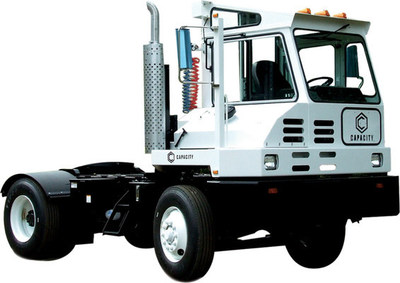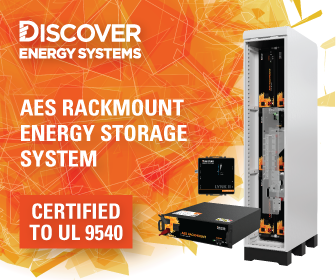Ballard Fuel Cell Modules to Power Yard Trucks at Port of L.A. in CARB-Funded Clean Energy Project
Ballard Power Systems (NASDAQ: BLDP; TSX: BLDP) announced that it will provide fuel cell modules to power two (2) port terminal yard trucks as part of a project being managed by GTI and partially funded by the California Air Resources Board (CARB). CARB has preliminarily awarded $5.7 million dollars to GTI for the Zero Emissions for California Ports (ZECAP) Project. The ZECAP Project will validate the commercial viability of zero-emission fuel cell electric hybrid yard trucks operating in a demanding, real-world cargo-handling application. The ZECAP Project is part of California Climate Investments, a statewide initiative that puts billions of Cap-and-Trade dollars to work reducing greenhouse gas emissions, strengthening the economy and improving public health and the environment - particularly in disadvantaged communities.

The project announced today will develop, validate, and deploy two Capacity TJ9000 fuel cell electric hybrid yard trucks at the Port of Los Angeles in California. The yard trucks will be operated by TraPac, the container terminal and stevedore operator at the port. Ballard will provide 85 kilowatt (kW) FCveloCity ®-HD fuel cell modules for primary propulsion of each yard truck and BAE Systems (www.baesystems.com) will provide the electric drive system and will have responsibility for systems integration using its HDS200 HybriDrive ® Propulsion System. The yard trucks will move cargo containers within the terminal yard. Ballard plans to deliver power modules in 2019 and a 12-month operating period is planned for the project, beginning in March 2020.
"Heavy duty vehicles have a disproportionate impact in terms of air pollution, with buses and trucks accounting for less than 10% of vehicles on the road but about one-quarter of all carbon dioxide emissions plus a significant amount of pollutants in California," said Rob Campbell, Ballard's Chief Commercial Officer. "This heavy duty vehicle project with GTI and BAE Systems is an important step forward in addressing this issue, particularly at shipping ports where a significant amount of pollution currently occurs. Hydrogen and fuel cells deliver an attractive value proposition, including zero emissions, extended vehicle range, long duty cycles, rapid refueling and zero compromise on payload."
In September 2018 California passed bill SB 100, which establishes a deadline for 100% zero-carbon electricity in the state. The bill will accelerate the state's renewable portfolio standard to 60% by 2030, and will require that the next 40% comes from zero-carbon sources of electricity by 2045. The San Pedro Bay Ports Clean Air Action Plan, encompassing the ports of Los Angeles and Long Beach, goes even further by mandating that all cargo handling equipment be zero-emission by 2030. Hydrogen and fuel cells provide a path to support achievement of these targets, while also enabling zero-emission equipment to be fueled in the same manner and same amount of time as natural gas and diesel fueled vehicles, minimizing real estate requirements, and maintaining operational practices.
"GTI is excited to be a part of this project team, including Ballard, that brings leadership and experience in their respective fields to propel the transition to a post-petroleum, heavy duty trucking economy," stated Ted Barnes, Research & Development Director at GTI. "We are very excited to showcase this breakthrough technology and its ability to provide a zero-emission solution for heavy duty truck operators and the citizens of California."
GTI | www.gastechnology.org
CARB | www.arb.ca.gov
California Climate Investments | www.caclimateinvestments.ca.gov
Ballard Power Systems | ballard.com











